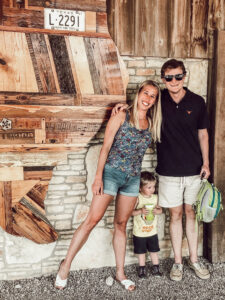Making an Impact: COBA’s Societal Impact Plan in Costa Rica
Written by special contributor Lance Fleming
Costa Rica, a small Central American country, is experiencing a significant increase in tourism. Travel officials in Costa Rica expect an unprecedented surge in tourists in 2023 and 2024. This country is famous for its national parks, rainforests, beaches, wildlife, and outdoor activities.
ACU students in the College of Business Administration have been traveling to Costa Rica since an initial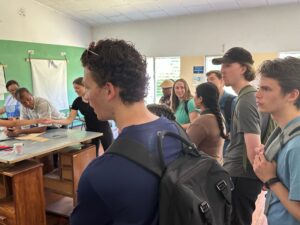 Central America Study Abroad trip with Dr. Mark and Dr. Laura Phillips in 2016. In 2018, they traveled to Turrialba, Costa Rica to visit CATIE, an agricultural university with a focus on economic development. In 2019, the first Social Enterprise Consulting class was offered and the partnership with CATIE began, focusing on economic development. But those students aren’t just in Costa Rica to observe. They are learning practical skills in research, marketing, and product creation from a class taught by Dr. Laura Phillips, Dr. Sarah Easter, Dr. Jennifer Golden, Dr. Mark Phillips, and Daniel Garcia. Currently, the class is working with local entrepreneurs to launch products made from materials donated by Southwest Airlines.
Central America Study Abroad trip with Dr. Mark and Dr. Laura Phillips in 2016. In 2018, they traveled to Turrialba, Costa Rica to visit CATIE, an agricultural university with a focus on economic development. In 2019, the first Social Enterprise Consulting class was offered and the partnership with CATIE began, focusing on economic development. But those students aren’t just in Costa Rica to observe. They are learning practical skills in research, marketing, and product creation from a class taught by Dr. Laura Phillips, Dr. Sarah Easter, Dr. Jennifer Golden, Dr. Mark Phillips, and Daniel Garcia. Currently, the class is working with local entrepreneurs to launch products made from materials donated by Southwest Airlines.
Dr. Mark Phillips and Garcia will teach the class next semester, and then Easter and Golden will teach a summer course. Students in each class will go over topics teaching them how to be a consultant, how to help without hurting, Costa Rican culture (both generally and in the business world), and some project-specific topics.
During Spring Break, the spring semester class will be in Costa Rica, and afterward, they will focus on completing their deliverable to the client for the rest of the semester. Dr. Laura Philips said the summer class will have a different format. It will include 5-6 weeks of online content on the same topics as in the spring. After that, students will spend nearly two weeks in Costa Rica to work on the project.
AACSB (the Association to Advance Collegiate Schools of Business) seeks to encourage all accredited schools to make a societal impact. As they state on their website, “AACSB’s vision of societal impact is that business schools contribute their specialized expertise to help mitigate some of society’s most pressing economic, social, human, and environmental problems.”
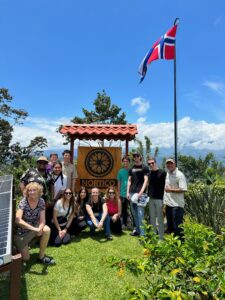 COBA was already seeking to make a broader societal impact through their programs. Now the Costa Rica activities are part of a broader COBA initiative. Dr. Laura Phillips said, “It’s exciting because AACSB is now asking us to do more of what we were already doing. The change isn’t to the consulting class. What’s different now is that we will have more activities (curricular, research, and engagement) focused on the same theme of Increasing Educational and Economic Opportunities for People in Marginalized Groups.”
COBA was already seeking to make a broader societal impact through their programs. Now the Costa Rica activities are part of a broader COBA initiative. Dr. Laura Phillips said, “It’s exciting because AACSB is now asking us to do more of what we were already doing. The change isn’t to the consulting class. What’s different now is that we will have more activities (curricular, research, and engagement) focused on the same theme of Increasing Educational and Economic Opportunities for People in Marginalized Groups.”
A five-person committee began meeting earlier this year to come up with a theme for the college’s work, Increasing Educational and Economic Opportunities for People in Marginalized Groups, and a tentative five-year plan.
“The plan includes curricular, research, and engagement objectives for our residential and online campuses,” Dr. Phillips said. “The Costa Rica class is one piece of this plan. We want the societal impact plan to provide opportunities for all interested faculty and staff to be involved, and that is part of the reason we are expanding the faculty who teach the consulting class. The plan also includes the development of additional partners for consulting projects. We are interested in developing a second international partner as well as cultivating a partnership closer to home.”
When Dr. Phillips first visited the CATIE campus with students in 2018, she connected with Dr. Eliecer Vargas, an economist at CATIE who specializes in economic development, which aligns well with the COBA students’ focus in Costa Rica.
Five years ago, students spent a few days exploring tourism startups by rural female entrepreneurs in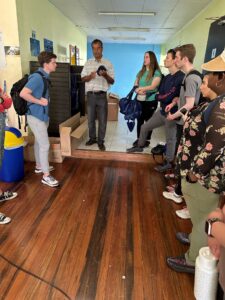 towns near Turrialba. After their trip, Dr. Phillips and Dr. Easter approached Vargas to discuss the idea of starting a consulting class and having the group of female entrepreneurs as their first client. Vargas agreed, and Dr. Phillips and Dr. Easter took their first group of consulting students to Costa Rica in the spring of 2019.
towns near Turrialba. After their trip, Dr. Phillips and Dr. Easter approached Vargas to discuss the idea of starting a consulting class and having the group of female entrepreneurs as their first client. Vargas agreed, and Dr. Phillips and Dr. Easter took their first group of consulting students to Costa Rica in the spring of 2019.
Southwest Airlines has served as the air provider for ACU’s program, transporting students and professors to and from Costa Rica, and in 2022, Southwest Airlines arranged a deal with CATIE to give the university seats from their refurbished planes.
The Turrialba region is now a major focus of Southwest’s investments. The company has set up a leatherworking shop on campus where local women and men can receive training and have access to leather and high-quality sewing machines with their support.
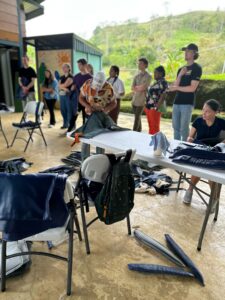 As part of Southwest Airlines’ “Repurpose with Purpose” program, each of the company’s fleet of airplanes is overhauled every four years, and as a part of that process, the seat leather is replaced. The leather pulled out of the planes is donated to nonprofit organizations for upcycling projects.
As part of Southwest Airlines’ “Repurpose with Purpose” program, each of the company’s fleet of airplanes is overhauled every four years, and as a part of that process, the seat leather is replaced. The leather pulled out of the planes is donated to nonprofit organizations for upcycling projects.
The idea is to create a business incubator to launch businesses as people graduate from the training program. Jobs are also being created in rural communities because CATIE receives intact seat covers that must be deconstructed before they are upcycled into new products.
And that’s where the ACU students enter the picture.
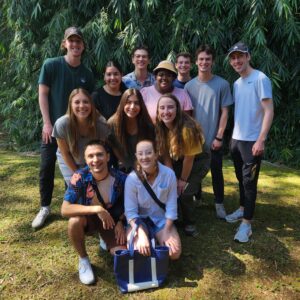 The students’ client is called Wearsos – the first business to come out of the leather project – and it was started by the husband-and-wife duo of Lynne Corvaglia and Chris Riquelme. Aside from upcycled bags, the company also plans to make other products like passport holders, wallets, luggage tags, and shoes.
The students’ client is called Wearsos – the first business to come out of the leather project – and it was started by the husband-and-wife duo of Lynne Corvaglia and Chris Riquelme. Aside from upcycled bags, the company also plans to make other products like passport holders, wallets, luggage tags, and shoes.
No two trips to Costa Rica have been alike, with the specifics of the project changing with every trip, usually at the request of the client. That means the specific business topics the students focus on vary.
“They always learn something from the business side of the project, although the bigger learning outcomes stem from the nature of cross-cultural consulting,” Dr. Phillips said. “The students have to stretch their problem-solving and critical-thinking skills and they have to do that in a group setting and not just on their own. Their flexibility and adaptability are put to the test every day we are there.
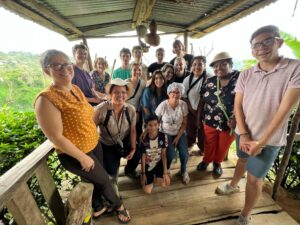 “They learn that other cultures may have different objectives and priorities for their business than what they usually see in the U.S., and they learn that the American measures of success are not the only measures,” she said. “They also learn that to provide useful recommendations for the client, they have to truly understand the client’s objectives and tailor their business solutions to meet the needs and the desires of the clients.”
“They learn that other cultures may have different objectives and priorities for their business than what they usually see in the U.S., and they learn that the American measures of success are not the only measures,” she said. “They also learn that to provide useful recommendations for the client, they have to truly understand the client’s objectives and tailor their business solutions to meet the needs and the desires of the clients.”
From the business skill side, Dr. Phillips said, the students have worked on market assessments and provided feedback based on the personas of different target customers. One class conducted focus groups to provide market research on potential products. Classes have researched logistics to help the client as they prepare to ship goods from Costa Rica to the US and Canada.
Other students created a comprehensive marketing plan (Instagram and Facebook posts, email campaigns,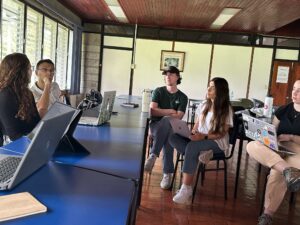 etc.) to help a client roll out a Kickstarter campaign. Students listened to entrepreneurs talk about current and future product ideas as well as where and how they intend to sell and then provided a comprehensive list of questions to each entrepreneur to help them think through and further develop their business plans.
etc.) to help a client roll out a Kickstarter campaign. Students listened to entrepreneurs talk about current and future product ideas as well as where and how they intend to sell and then provided a comprehensive list of questions to each entrepreneur to help them think through and further develop their business plans.
Dr. Phillips said proposed expansion plans for the program that have been discussed are for the Costa Rica consulting class to be offered twice each year: once in the spring and once in the summer with a variety of faculty involved in teaching the class. Dr. Phillips also said she would like to involve COBA alumni on the trip to provide their expertise in the project’s area of focus.
“That could be social media marketing, logistics, building basic business plans, finding funding sources, or rural development,” she said. “I also hope to continue our partnership with Southwest Airlines. It has been valuable to be working with their Repurpose with Purpose group because we can truly partner to support these clients.”
To learn more about the College of Business at ACU, click here.
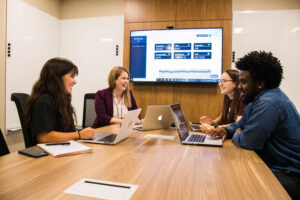 significant change to business curricula at ACU in at least three decades” with revisions to the Bachelor of Business Administration (BBA) majors.
significant change to business curricula at ACU in at least three decades” with revisions to the Bachelor of Business Administration (BBA) majors.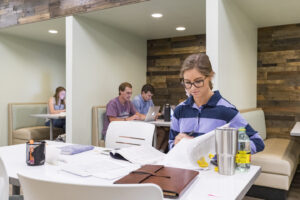
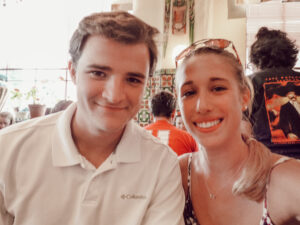 COBA wants to give a warm welcome to Dr. Trent McNamara, Assistant Professor of Economics. This fall, McNamara will be teaching Principles of Microeconomics and Business Statistics. Trent was born in New Zealand, grew up in Ohio, and moved to Texas in 2007 shortly before starting high school. McNamara double majored in Economics and Pure Mathematics at the University of Texas, graduating in 2015. He then continued with his education, entering into a doctorate program at Texas A&M University where he earned his Ph.D. in Economics in May 2020. Dr. McNamara has been a lecturer for Texas A&M and has also worked in consulting. Trent has been married to his wife, Shelby, for 5 years and together they have a three-year-old son, Haydn.
COBA wants to give a warm welcome to Dr. Trent McNamara, Assistant Professor of Economics. This fall, McNamara will be teaching Principles of Microeconomics and Business Statistics. Trent was born in New Zealand, grew up in Ohio, and moved to Texas in 2007 shortly before starting high school. McNamara double majored in Economics and Pure Mathematics at the University of Texas, graduating in 2015. He then continued with his education, entering into a doctorate program at Texas A&M University where he earned his Ph.D. in Economics in May 2020. Dr. McNamara has been a lecturer for Texas A&M and has also worked in consulting. Trent has been married to his wife, Shelby, for 5 years and together they have a three-year-old son, Haydn.